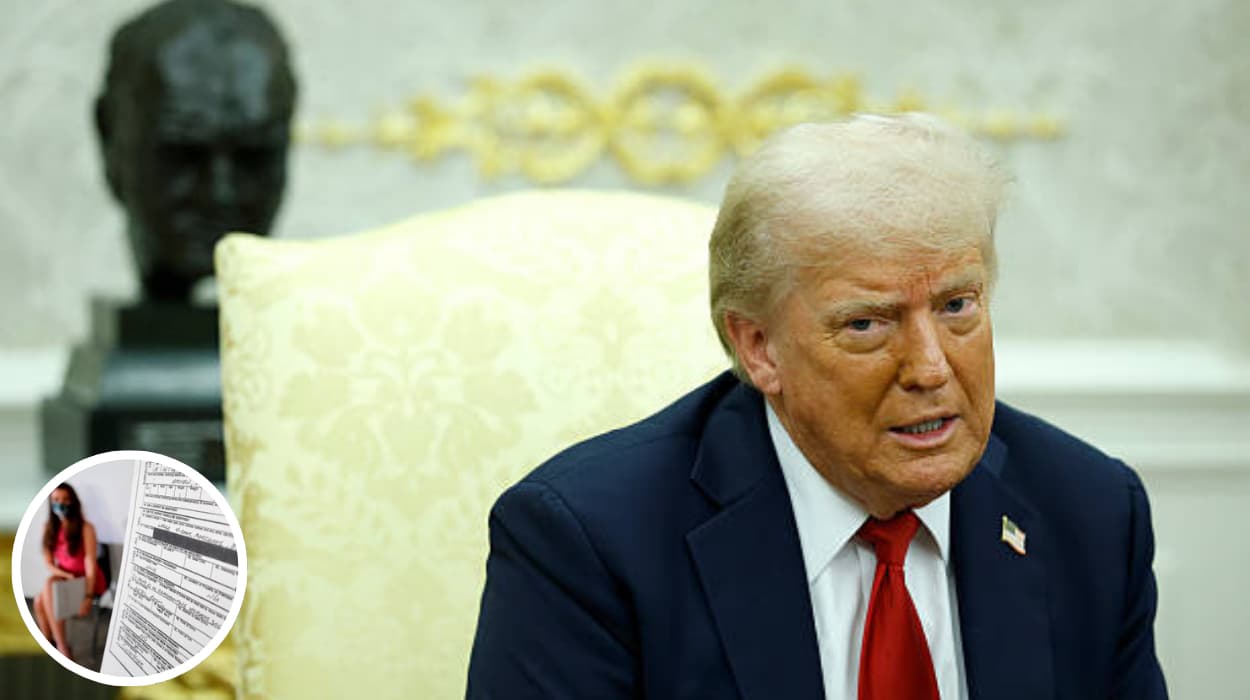Key Points:
- President Donald Trump is under congressional scrutiny related to Federal Reserve Chair Jerome Powell and Jeffrey Epstein.
- Congress is actively working on legislation aimed at reclaiming or restricting government spending tied to Trump-related interests.
- The ongoing investigations and legislative efforts highlight concerns about fiscal responsibility and political accountability.
- The news emerges amid heightened political tensions and broader debates on federal budget priorities.
- Sources underscore the complexity of intertwining political, financial, and ethical issues surrounding Trump, Powell, and Epstein.
The developing story reflects a broader congressional effort to enhance transparency and accountability related to President Donald Trump’s connections with influential figures such as Federal Reserve Chair Jerome Powell and the late Jeffrey Epstein. As lawmakers intensify inquiries and pursue legislative measures to reclaim government funds linked to Trump, the impact of these actions may reverberate through political and financial institutions, underscoring ongoing debates about ethics and governance in the United States.
What Are the Main Issues Trump Faces Related to Powell and Epstein?
As reported by various media outlets covering the political landscape, President Donald Trump is being questioned by Congress regarding his connections and influence over Jerome Powell, the current Chair of the Federal Reserve, and the late Jeffrey Epstein, whose allegations and network continue to provoke controversy. The inquiries focus on potential conflicts of interest, decision-making influence, and ethical breaches that may have occurred during Trump’s tenure or prior business dealings.
The Powell-related questions allegedly examine the Federal Reserve's policy decisions and whether political pressure was exerted to benefit Trump’s agenda or financial interests. Regarding Epstein, the scrutiny stems from Trump's previous associations and what role, if any, they might have played in overlooked or mishandled investigations into Epstein's activities. These matters have captured congressional attention due to their implications for institutional integrity and governance standards.
How Is Congress Responding Through Legislative Action?
Congress is simultaneously progressing on a bill designed to claw back government spending that is connected to Trump-affiliated entities or expenses deemed inappropriate. The legislative effort aims to tighten oversight, enhance transparency, and recover funds potentially misallocated or improperly spent under the prior administration or its influences. Lawmakers argue that this step is crucial to ensure taxpayer money is used responsibly and to restore public trust in fiscal governance.
The bill’s scope reportedly extends beyond simple budget corrections; it seeks to establish mechanisms preventing future misappropriations and increasing accountability for federal expenditures with political ties. The initiative reflects bipartisan concern over financial stewardship and is moving through committee reviews with a focus on rapid enactment.
What Are the Broader Implications of These Developments?
Observers from major news organizations note that the congressional actions spotlight enduring issues about governance, the separation of powers, and ethical conduct in American politics. Trump’s persistent influence across political and financial institutions, exemplified by these inquiries and fiscal clawbacks, underscores the challenges of dismantling entrenched networks of power and ensuring checks on authority.
Political analyst Gretel Kahn, writing for a reputed international news summary, highlights that such investigations often serve dual purposes: addressing immediate concerns and setting precedents for institutional reform. While it remains uncertain how much legal or political jeopardy Trump faces, the symbolic weight of congressional scrutiny and spending bills addresses voter demands for accountability.
What Are the Responses from Trump and His Allies?
As per statements relayed by reporters closely following Capitol Hill deliberations, Trump and his supporters have dismissed the questioning and legislative efforts as politically motivated attempts to undermine his legacy and influence. They characterize the moves as partisan maneuvers lacking substantive evidence and call for the public to consider the broader political context influencing these activities.
Trump's representatives emphasize their cooperation with any legitimate inquiries while rejecting accusations of wrongdoing. The narratives put forward suggest a strategic framing aimed at mobilizing his political base and deflecting criticism as the legislative process unfolds.
Why Does This Matter to the American Public?
The intense focus on Trump’s connections to powerful figures like Powell and Epstein, paired with efforts to rein in government spending linked to his administration or affiliates, resonate with widespread concerns about corruption, ethical governance, and fiscal responsibility. Citizens across the political spectrum are observing how Congress exercises its oversight role and responds to controversial figures with enduring national impact.
This moment in American politics serves as a critical test of the resilience of democratic institutions and the mechanisms designed to prevent abuse of power. The evolving story will likely influence public trust in government and shape future policy debates on transparency and accountability.
This comprehensive coverage is synthesizing reporting from multiple credible sources on the evolving situation surrounding Donald Trump, his questioned relationships with Jerome Powell and Jeffrey Epstein, and the legislative response aimed at fiscal oversight.

